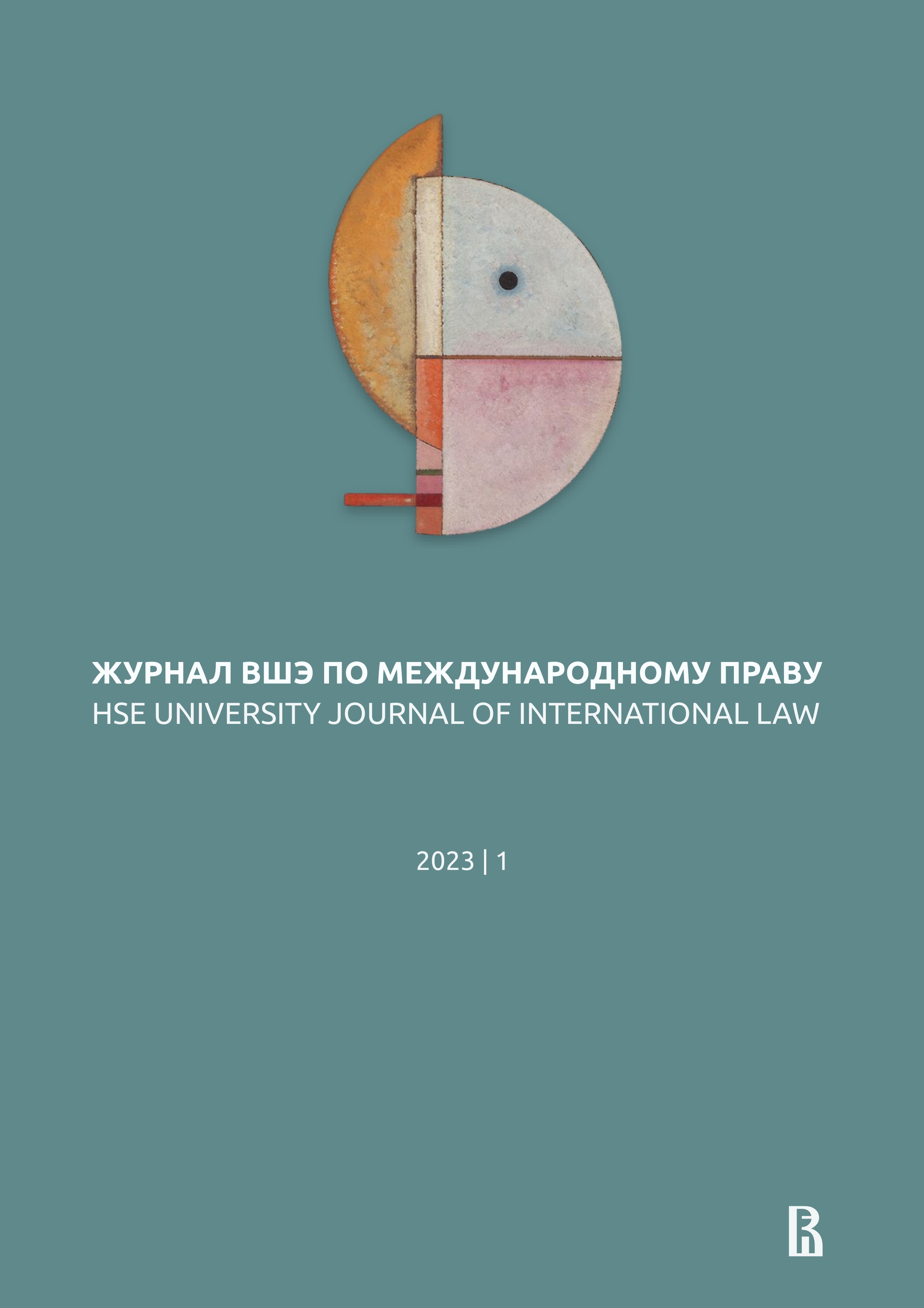Between Law and Politics: Nuclear Non Proliferation and State-Induced Compliance in International Trade
Abstract
The US economic sanctions (including sweeping export restrictions) against Iran and Russia, while presented as aiming at non-proliferation, appear to have ineluctably undermined the negotiations to revive the Joint Comprehensive Plan of Action, an agreement meant to deter Iran from pursuing nuclear status. The present paper approaches this situation as a telling example of how unrestrained export control can come into tension with international security, in this case within the nuclear non-proliferation regime. Drawing on this illustrative case, this article seeks to formulate more general conclusions as regards the potential side-effects of broad export restrictions, their necessary limits under WTO law, and the significance of the WTO system in the non-proliferation process. First, this paper contextualises export controls as part of this regime, and then addresses the causal implications of the above situation, concluding that it does demonstrate the involvement of a foreign policy element that is ultimately at odds with the stated goals of nuclear non-proliferation. Finally, the paper examines the substance of Article XXI of the General Agreement on Tariffs and Trade, which the sanctioning State will most likely use to justify its trade restrictions in a WTO dispute. It finds that a good faith interpretation and available practice indicate that the exceptions of Article XXI involve demanding standards and are to be interpreted so as to screen out, as far as possible, measures that covertly pursue other (e.g. foreign policy) interests. Meanwhile, non-WTO Member States could try to advance cases through friendly Members if they could establish a breach of WTO law that concerns the latter, though the chances are admittedly very thin. Ultimately, the WTO system is revealed as a valuable element in ensuring and maintaining international security and non-proliferation.
Downloads
References
Beaucillon C. (ed.) (2021) Research Handbook on Unilateral and Extraterritorial Sanctions, Cheltenham: Edward Elgar Publishing. https://doi.org/10.4337/9781839107856
Berndorfer T. (2009) Nuclear Commerce: Its Control Regime and the Non-Proliferation Treaty, Hamburg: Diplomica Verlag.
Black-Branch J. L., Fleck D. (2016) Nuclear Non-Proliferation in International Law. Volume II, Verification and Compliance. Hague: Asser Press. https://doi.org/10.1007/978-94-6265-075-6
Bown C. P. (2020) How the United States Marched the Semiconductor Industry into its Trade War with China. East Asian Economic Review, vol. 24, no. 4, pp. 349–388. http://doi.org/10.2139/ssrn.3766574
Cirincione J. (2000) Repairing the Regime: Stopping the Spread of Weapons of Mass Destruction, New York: Routledge.
Dodge T. (2010) The Failure of Sanctions and the Evolution of International Policy Towards Iraq, 1990–2003. Contemporary Arab Affairs, vol. 3, no. 1, pp. 83–91. http://doi.org/10.1080/17550910903525952
Jiangyu W., Hewett D. (2021) U.S.–China Trade Relations in the Biden Era: Trade War, Industrial Policy, and Rule-Based International Order. Proceedings of the ASIL Annual Meeting, vol. 115, pp. 315–320. http://doi.org/10.1017/amp.2021.127
Joyner D. H. (2009) International Law and the Proliferation of Weapons of Mass Destruction. Oxford: Oxford University Press. http://doi.org/10.1017/S0020589310000357
McKenzie F. (2008) GATT and the Cold War: Accession Debates, Institutional Development, and the Western Alliance, 1947–1959. Journal of Cold War Studies, vol. 10, no. 3, pp. 78–109. https://doi.org/10.1162/jcws.2008.10.3.78
Menkes M. J. (2019) The Legality of US Investment Sanctions against Iran before the ICJ: A Watershed Moment for the Essential Security and Necessity Exceptions. Canadian Yearbook of International Law/Annuaire canadien de droit international, vol. 56, pp. 328–364. http://doi.org/10.1017/cyl.2019.19
Reinsch W. A. (2022) China as Best Customer and Biggest Threat — Trade Policy in the Biden Era. Schwerpunkt Außenwirtschaft 2021/2022.
Sidel V., Levy, B. (2007) Proliferation of Nuclear Weapons: Opportunities for Control and Abolition. American Journal of Public Health, vol. 97, no. 9, pp. 1589–1594. https://doi.org/10.2105/ajph.2006.100602
Terry P. C. R. (2020) Enforcing US Foreign Policy by Imposing Unilateral Secondary Sanctions: Is Might Right in Public International Law? Washington International Law Journal, vol. 30, no. 1, pp. 1–27. http://doi.org/10.17323/1996-7845-2022-01-02
Whang C. (2021) Trade and Emerging Technologies: A Comparative Analysis of the United States and the European Union Dual-Use Export Control Regulations. Security and Human Rights, vol. 31, no. 1/4, pp. 1–24. http://doi.org/10.1163/18750230-31010007
This work is licensed under CC BY-NC-ND 4.0


